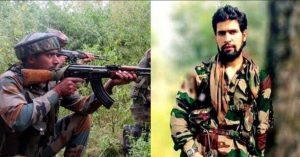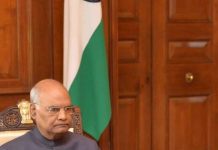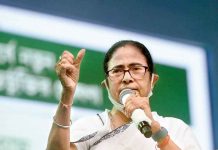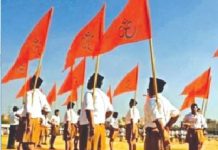 On May 23, the day the outcome of general elections was announced, security forces in Kashmir killed Zakir Musa, the first and the last remaining militant of the Al Qaeda affiliate Ansar Gazwat-ul-Hind. He was killed at Dadsar Tral, his native village.
On May 23, the day the outcome of general elections was announced, security forces in Kashmir killed Zakir Musa, the first and the last remaining militant of the Al Qaeda affiliate Ansar Gazwat-ul-Hind. He was killed at Dadsar Tral, his native village. In July 2017, Musa had created a sensation by threatening to chop off the heads of the top separatist leaders and displaying these in the city square. He had joined local militant outfit Hizbul Mujahedeen in 2013 and overseen its renewed growth as a close aide of its slain commander Burhan Wani. He was also chosen as Burhan’s successor but along the way he went through a radical transformation in his ideology which persuaded him to question the fundamental premise of the struggle in Kashmir. According to him, the goal of the militancy should be the creation of an Islamic state, rather than a secular nation. So, he argued even against seeking Kashmir’s merger with Pakistan, which he called a “secular nation”.
“The objective of our struggle is only and only the glory of Islam and the implementation of Shariah,” Musa had said in an audio message. He warned that the militants would brook no deviation from this goal.
But when Pakistan based leadership of Hizbul Mujahedeen censored him for his remarks, even calling him an “Indian agent”, Musa decided to strike on his own and quit Hizb. Within weeks he emerged as the head of the Al Qaeda affiliate Gazwat-ul-Hind. The announcement was made by Global Islamic Media Front, a media wing of Al Qaeda.
In a press release issued both in English and Urdu, Al Qaeda said that “a new movement of jihad has been founded by the companions of martyr Burhan Wani under the leadership of Mujahid Zakir Musa (May Allah Almighty protect him)”.
In Kashmir, threat was not seen as operational but ideological. It was an attempt to fit Kashmir struggle into a pan-Islamist frame and widen its horizon to entire India.
But as Kashmir’s Al Qaeda chief, Musa was hardly heard again. His otherwise frequent audio messages died down. Fewer militants joined the outfit over the past two years and all of them were killed.
Incidentally, Musa was killed weeks after the killing of Ishfaq Ahmad Sofi, the purported last militant of Islamic State (IS). But despite Sofi’s killing, the IS claimed to have established a new “province” in Kashmir.
However, security agencies have downplayed the claim, saying the IS in Kashmir has no connection with the global jihadi outfit.
But with the killing of Musa and Sofi, the two purported proponents of the pan-Islamist ideology in Kashmir, it is now only Kashmir-centric outfits like Hizbul Mujahedeen, Lashker-i-Toiba and Jaish-e-Mohammad who are active in the state.
Security agencies, however, see Musa’s killing as a major setback to the militancy in the state.
“Zaki Musa had created a new concept and cult of radical jihad and militancy in Kashmir. He was the last militant of such radicalised ideology,” Director General of Police Dilbgah Singh said in a statement. “With his killing, forces have killed last such militant who was influenced by ISIS ideology in Kashmir”.
However, Musa’s killing may have signalled a potential end to Al Qaeda militancy in Kashmir, but it, in no way, is a blow to the armed separatist campaign in the state. The Valley, according to a security estimate, still has around 200 militants and most of them make the ranks of Hizbul Mujahedeen. What is more, the local recruitment has continued unabated, with an estimate putting the number of youth joining this year at 40 so far.
“We are working to ensure that the local recruitment stops,” said a police officer. “And once that happens, it won’t take long for the militancy to wind down”.













